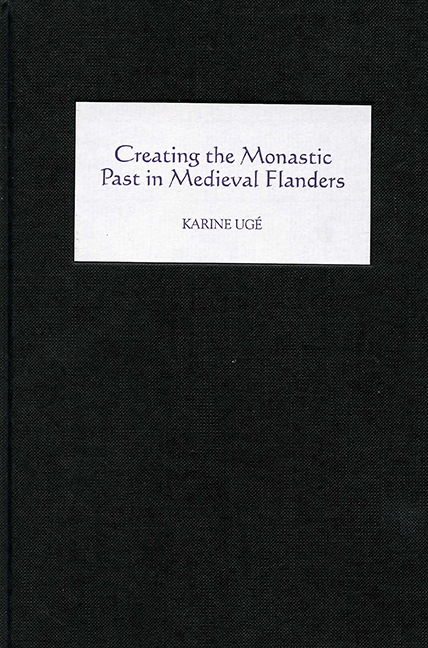Conclusion
Published online by Cambridge University Press: 12 September 2017
Summary
Study of the politics of narrative production at Saint-Bertin, Marchiennes and Saint-Amé lets us examine how each community made its past useful through the preservation and alteration of its historical tradition. Observing this process community by community has allowed us not only to study the life of each of them in some detail, but also to assess their cultural and literary abilities and their material and spiritual values. To broaden the conclusions beyond the specifics of each community, I would like to look back at the main issues raised in the previous chapters. A number of subjects stand out as fundamental and recurrent: the process of creating a usable past through the preservation and transformation of a community's archives and historical tradition; the impetus behind historiographic production; the issues of forgery and ‘historical truth’ and the related questions of genre and content.
If we compare how each community engaged in the process of writing and re-writing its own history, the most significant outcome may be that early and high medieval historiography knew no general rules and followed no overreaching conventions. Each community used narrative production to express its own set of values and to respond to crisis situations in a mostly idiosyncratic, original and even inventive way. A community's historiographical politics did not depend on prescribed precepts and methods; rather, they were the product of the circumstances of the time, the cultural and intellectual environment of the monastery and of the textual models available – in Gabriel Spiegel's words, the ‘social logic of the text’.
The communities studied engaged in this narrative process for centuries, through the preservation, destruction and alteration of their historical traditions and archives. Each community, however, did it in its own, particular way, with varying intensities, purposes and methods. The monks of Saint- Bertin, who continuously reinvented their past over a period of eight hundred years, were the most steadfast in this endeavor. The abbey's archives and the narratives produced in the tenth and eleventh centuries constituted such fruitful records of the past that they remained in use until the French Revolution. Nevertheless, the conflict that triggered most of the monks’ writing efforts – their struggle over supremacy and anteriority with the canons of Saint-Omer – was never resolved.
- Type
- Chapter
- Information
- Creating the Monastic Past in Medieval Flanders , pp. 162 - 172Publisher: Boydell & BrewerPrint publication year: 2005

